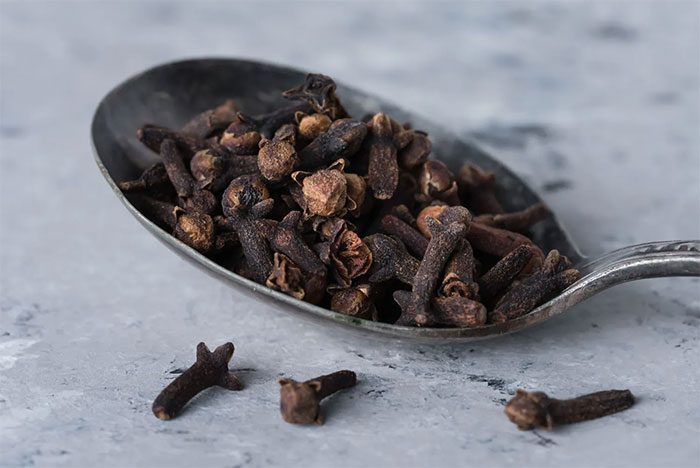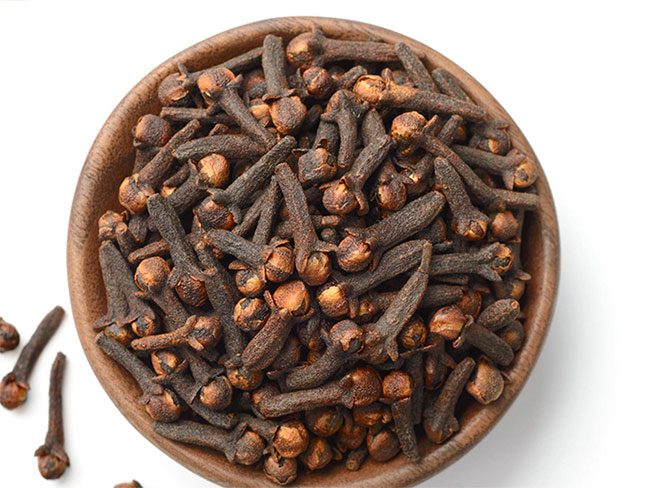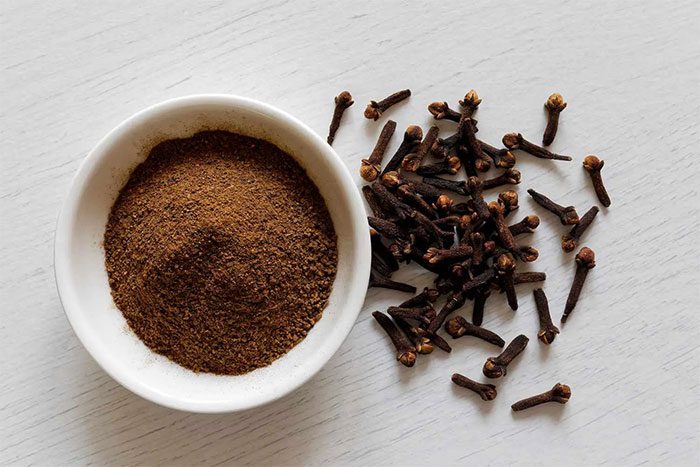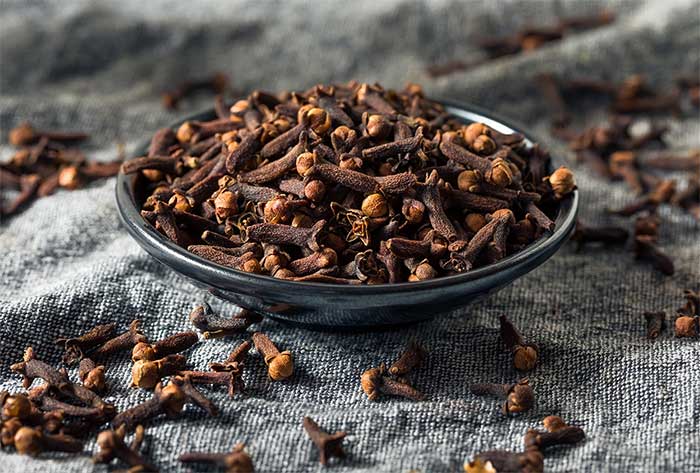Cloves are a common spice in beef pho, alongside cinnamon, star anise, cardamom, and more. Cloves have a sweet yet slightly bitter flavor and are used as a spice, in tea blends, for essential oil extraction, in medicine, or as an ingredient in various health care products with numerous health benefits.
Common Health Benefits of Cloves According to Scientific Research from NIH and Healthline
- 1. Rich in Antioxidants and Anti-inflammatory Properties
- 2. May Help Protect Against Cancer
- 3. Kills Bacteria
- 4. Fights Infections
- 5. Cloves Improve Liver Health
- 6. Regulates Blood Sugar Levels
- 7. Enhances Bone Health
- 8. May Help Reduce Stomach Ulcers
- 9. Supports Toothache Relief
- 10. How Much Clove Should You Consume Daily?
Cloves belong to the Myrtaceae family and are also known as Syzygium aromaticum. The flower buds of cloves (the main part used) are harvested when the buds begin to change from green to reddish-pink, either leaving the stem intact or cutting it off, then drying in the shade or lightly drying until fully dry.
Cloves are rich in antioxidants, proteins, fiber, calcium, iron, zinc, potassium, niacin, folate, vitamin B, vitamin C, vitamin E, vitamin D, and vitamin K, making them highly beneficial for health.
1. Rich in Antioxidants and Anti-inflammatory Properties
In addition to containing several important vitamins and minerals, cloves are particularly high in a natural antioxidant known as eugenol (comprising 70% to 90% of clove oil), which has been shown to reduce oxidative stress—a contributing factor to chronic disease development—and has powerful anti-inflammatory and pain-relieving effects.
According to Healthline, test tube studies indicate that eugenol can prevent oxidative damage caused by free radicals five times more effectively than vitamin E, which is known for its strong antioxidant properties. Furthermore, studies on rodents have shown that cloves provide anti-inflammatory benefits and may help inhibit enzymes that promote inflammation, such as Myeloperoxidase (MPO), a marker of inflammation and oxidative stress that tends to be elevated in individuals with certain health conditions, such as heart disease.

Cloves offer many health benefits. (Image: Internet).
2. May Help Protect Against Cancer
A test tube study found that clove extract helps inhibit tumor growth and promotes the apoptosis of cancer cells, with eugenol being identified as the compound with the most significant effects. However, despite these encouraging findings, there is currently no evidence that clove supplementation reduces tumor growth or improves inflammatory markers and cell damage in humans.
Moreover, these studies utilized concentrated clove extract, and high doses of eugenol can be toxic to the liver, particularly in children, necessitating more in-depth human studies before making definitive conclusions.
It is crucial to note that supplements and herbal remedies cannot treat, cure, or prevent diseases. Abandoning traditional chemotherapy in favor of alternative therapies can lead to worse outcomes.
3. Kills Bacteria
Cloves possess antibacterial properties, meaning they can help prevent the growth of harmful microorganisms such as the E.coli bacteria that cause food poisoning or bacteria responsible for gum disease, thereby enhancing oral health…
A study involving 40 participants tested the effects of a herbal mouthwash containing tea tree oil, cloves, and basil. The results showed that using this mouthwash for 21 days significantly improved participants’ gum health, reducing plaque and bacteria in the mouth. This benefit is enhanced when combined with regular brushing and proper oral hygiene.

Cloves have antibacterial properties. (Image: Internet).
4. Fights Infections
According to Traditional Medicine, cloves are used to treat various infections, including respiratory infections. Research has shown that cloves have antifungal, antibacterial, and anti-inflammatory effects, which may be helpful in treating and preventing certain infections.
For example, clove oil has been shown to have antifungal and antibacterial effects against pathogens commonly affecting humans, such as Candida yeast and Aspergillus fungi.
Additionally, eugenol, the primary active compound in cloves, has been demonstrated to inhibit the replication of viruses and reduce viral infections from herpes viruses, such as herpes simplex-1 (HSV-1) and herpes simplex-2 (HSV-2), and provides antiviral effects against hepatitis A and influenza A, according to NIH.
Researchers have also investigated whether compounds found in cloves could effectively combat COVID-19 infections. However, further human studies are needed to determine if cloves provide any protection against COVID-19 or benefits for those infected with the virus.
While animal and test tube studies suggest that cloves and clove extracts may offer significant protection against certain pathogens and infections, there is currently insufficient research on these benefits in humans.

According to Traditional Medicine, cloves are used to treat various infections. (Image: Internet).
5. Cloves Improve Liver Health
According to Healthline, studies indicate that many antioxidant compounds in cloves, such as eugenol, may be particularly beneficial for the liver, including improving liver function, reducing inflammation, and decreasing oxidative stress. However, research on the liver-protective effects of cloves in humans is still quite limited. Furthermore, as previously mentioned, high doses of eugenol can be harmful to health.
A small study found that supplementing with eugenol for one week helped reduce levels of glutathione-S transferase (GST)—a family of enzymes involved in detoxification that is often a marker of liver disease.
6. Regulates Blood Sugar Levels
Clove extract and nigericin found in cloves have been shown to increase the absorption of sugar from the blood into cells, enhance insulin secretion, and improve the function of T cells that play a role in insulin production. When combined with a balanced diet, cloves can effectively support blood sugar control.
In other words, supplementing with clove extract may help lower blood sugar levels in healthy individuals and those with diabetes.
While these results are promising, more research is needed to understand how clove extract can help reduce blood sugar levels.
7. Enhances Bone Health
Bone health declines with aging due to reduced bone mass and increased fracture risk. Cloves are rich in manganese (55% DV per 2 grams of ground cloves), which effectively supports bone formation and is crucial for increasing bone mineral density and bone development.
Additionally, clove extract is also rich in eugenol, which has been shown to improve several signs of osteoporosis and increase bone density and strength.
However, research on the effects of cloves on bone mass is mostly limited to animal and test tube studies, necessitating more research to conclude this effect.

Cloves are also used for making tea. (Image: Internet).
8. May Help Reduce Stomach Ulcers
Peptic ulcers cause painful sores to form in the lining of the stomach, duodenum, and esophagus. The common causes stem from the weakening of the stomach’s protective lining due to factors such as stress, infection, and genetics.
Clove oil has been shown to help increase gastric mucus production—which acts as a barrier to prevent the erosion of the stomach lining caused by acid from the digestive process. However, the current data is insufficient and merely promising, requiring further studies in humans before concluding the necessary amount of cloves to achieve the desired effect.
9. Supports Toothache Relief
Clove oil is perhaps best known as a remedy for toothaches. The use of clove oil for treating toothache was first recorded in France in 1649.
In an older study published in the Journal of Science involving 73 adults, researchers found that a gel made from cloves was comparable to benzocaine (a local anesthetic) in its ability to reduce pain when applied to the mouth.
This effect comes from eugenol, a natural anesthetic. Although clove essential oil is highly beneficial for treating pain, there is insufficient evidence to suggest it can effectively eliminate the bacteria causing the issue.
10. How much clove should you consume daily?
The World Health Organization (WHO) has established an acceptable daily intake of cloves at 2.5mg per kg of body weight. This means that a person weighing 58.9 kg can safely consume approximately 147 mg of cloves or less each day. However, before adding any compound to your diet, it is essential to consult with a doctor to avoid unwanted side effects.
Particularly, clove supplements may not be safe for infants and young children, pregnant women, or those who are breastfeeding. In rare cases, infants and children have experienced liver damage, seizures, and other abnormalities after consuming undiluted clove oil. Clove oil also contains a significant amount of eugenol, which can lead to severe side effects such as seizures and liver damage if ingested in very high amounts. For this reason, clove essential oil should not be consumed.



















































